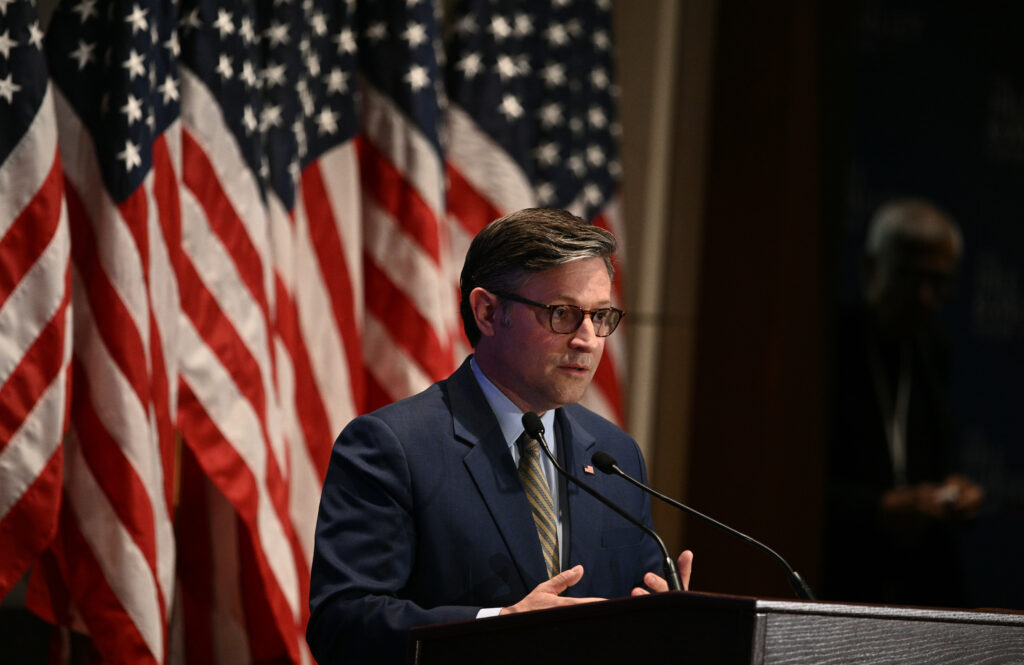Eddie Williams is a schoolteacher from Monday to Friday and a wedding singer on weekends. In his spare time, he lifts enormously heavy weights as he competes to be the world’s strongest man.Some people think weightlifters are “a lot of angry people who just like to throw weight around,” the 420-pound (190-kilogram) Australian told AFP, but “I can be, you know, a happy person, and still be able to lift heavy weights.”Dripping with sweat after a Stone Medley — that is lifting very heavy stones — Williams insisted there is no contradiction between strength and likability. His wife Hannah agreed.”They’re these gentle giants that are just so lovely, such beautiful human beings that are caring, and they’re all cheering for each other,” she said.They were in the California capital for the “World’s Strongest Man” competition, taking place from Thursday to Sunday.Human colossuses like Williams, with sculpted backs, impossibly muscled arms and rippling thighs, compete by lifting objects up to twice their own weight — or more.Mitchell Hooper, a 29-year-old former champion who has a master’s degree in clinical exercise physiology, agreed that people have a mistaken idea about competitive weightlifters.People think “that we’re uneducated meatheads,” said the 320-pound Canadian, whose nickname is “Moose.” But, he added, “a lot of guys have higher education, and we train to compete strongly, because we just like to challenge ourselves.” One man who clearly wanted to destroy stereotypes was American Rob Kearney, who dyed his hair and beard in rainbow colors for the competition and calls himself “the world’s strongest gay man.”Kearney, 33, a former competitor attending the event in Sacramento, said he wanted to “break some of those stereotypes of what (people) think masculinity is.””Strength isn’t just the amount of weight we can deadlift,” he said. “Strength is all about who you are as a person, how you hold yourself and how you support others.”- A struggle of titans – The World’s Strongest Man competition was first held in 1977 at Universal Studios in California.The concept has remained the same but, over the years, the sport has gained investors and enthusiasts, becoming more professional: eight world records have been set here in the last 14 years.The names of the individual events — the “Titan’s Toss,” “Atlas Stones,” “Flintstone Barbell” and “Hercules Hold” — convey the magnitude of the challenges.To build the enormous strength necessary, nutrition is vital, said 30-year-old Rayno Nel, a South African beginner in such competitions.Nel, who took up the sport after graduating with a degree in mechanical engineering, puts in long nights at his gym while following a complicated eating schedule aimed at providing him with 6,000 calories a day in meat and vegetables.That takes sacrifice, he said, while quickly adding, “I love it.”Once the competition is over, Nel plans to grab a burger and a beer.But for these Samsons — some over 6-feet-6 (two meters) tall — it’s not all about food and exercise.Concentration and focus are also essential, said Odd Haugen, 75, a former competitor.”You’ve got to be really ready,” he said, “because it’s really heavy!”- ‘In pain every day’ -Hooper, who was catching his breath after throwing 30-pound sandbags over a 12-foot-high bar, acknowledged to AFP that there are downsides to being one of the world’s strongest men.”You wake up in pain every day. You’re constantly sore. You don’t fit in normal spots. You have to wear a sleep apnea machine. You’re always hot. You’re always sweating.”But, he added, “the upsides are pretty cool.”Those include the enthusiastic fans, friends and family members who explode with joy when their favorite lifter manages a feat, or suffer along with him if he falls short.Power lifting is a competitive discipline, but the sense of camaraderie in the arena is clearly felt.Competitors watch their rivals intently, cheering them on, shouting and clapping.Such support, Kearney said, is the perfect refutation of all the stereotypes. “When you see two men embrace each other and cheer for each other and support each other,” he said, “it really shows just what strength means.”









